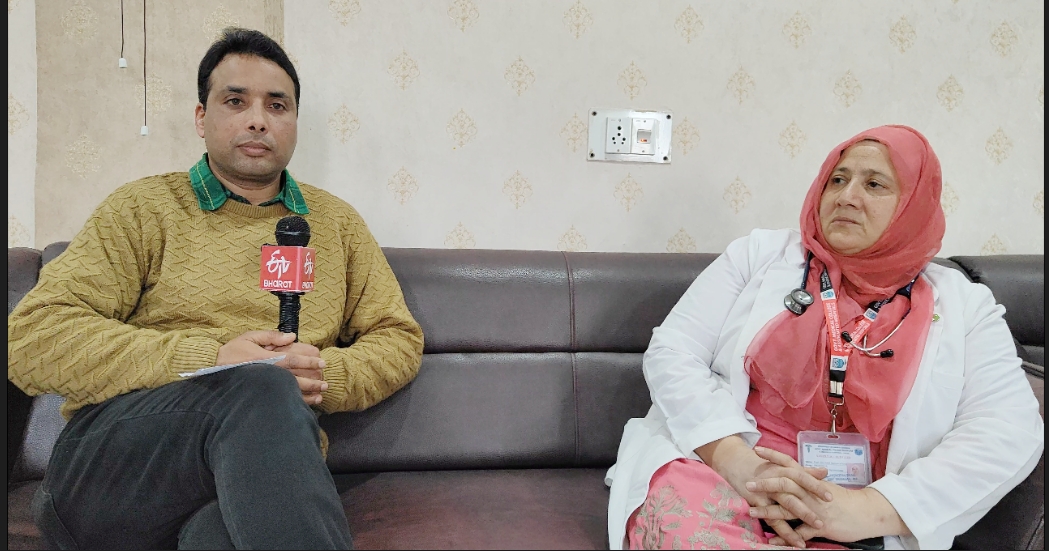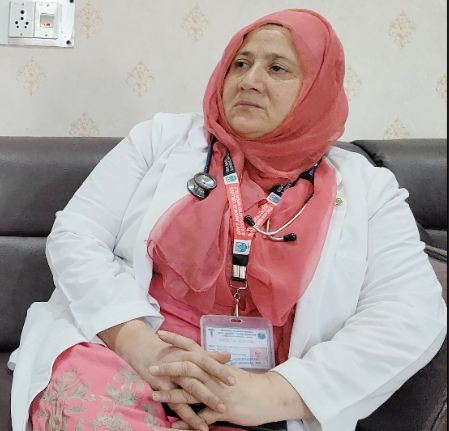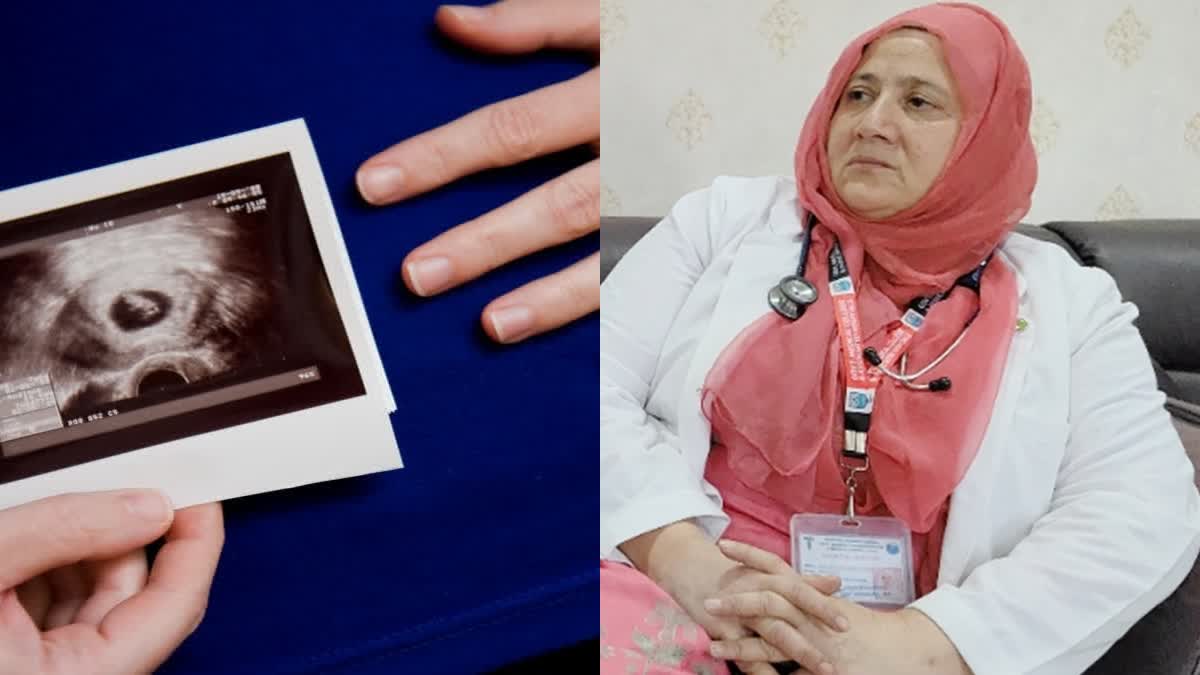Srinagar: The rate of gestational diabetes among women is increasing across the country with Jammu and Kashmir being no exception.
The union territory is witnessing an alarming rise in cases of gestational diabetes, which was believed to be non-existent until a few years ago.
In an exclusive conversation, Dr Syed Masooma Rizvi, Professor and Head Department of Obstetrics and Gynecology at GMC, Srinagar said that the rate of diabetes among pregnant women is increasing in Jammu and Kashmir, which was seen to be low or non-existent a few years ago.
What Is Gestational Diabetes?
Dr Rizvi said that when a woman gets pregnant, her body starts producing some hormones in excess. These hormones are for the protection of the child in the mother's womb. But when the level of these hormones increases in the blood over time, a resistance to insulin develops in the blood due to which the sugar level in the blood increases, which is called gestational diabetes.
Symptoms
Dr Rizvi said that generally Gynecologists regularly conduct sugar tests in pregnant women after 24 weeks in routine check-ups. Symptoms of gestational diabetes include general fatigue, frequent urination and extreme thirst.

Causal Factors
Dr Rizvi said that there are many reasons for diabetes in pregnant women which include late marriage, previous or family history of diabetes, obesity, sedentary lifestyle and diet. The risk of gestational diabetes during pregnancy is higher in women who are over 45 years of age, have pre-existing pancreatic or poly-cystic ovarian disease.
Complications
According to Dr Rizvi, gestational diabetes can be more dangerous for the expecting mother in some cases than for the baby. Although there has been a significant decrease in the trend of home births, even in urban areas, most women start visiting the doctor regularly several months after confirming pregnancy which delays the diagnosis of diabetes, she said.
Dr Rizvi said that the increase in sugar levels with each passing month of pregnancy can have its effects on the baby, and if the mother's diabetes is not under control in the early days of pregnancy, the baby's brain, heart or spine can be affected. Secondly, if the mother does not have diabetes at first and develops it later and is not aware of it, it may happen that the amount of water around the baby may increase, Dr Rizvi said.

“In this case, the baby may be overweight, which can, in turn, cause problems such as not having a normal delivery. In such a case, if a normal delivery is attempted, many other problems may arise,” added Dr Rizvi.
Treatment
Dr Rizvi said that the treatment of gestational diabetes depends on how high the sugar level is in the mother’s blood. “Sometimes doctors advise the mother to control sugar through diet and light exercise in the initial situation, but if this level does not decrease, ten to twenty percent of such pregnant women are advised to get insulin injections until the completion of the pregnancy period,” she said.
Dr Rizvi said that after delivery, the blood sugar level among women suffering from gestational diabetes automatically returns to normal. However, Dr Rizvi warned that such a woman remains at high risk of developing diabetes throughout her life.
“The baby may also go on to suffer from diabetes. Women who avoid taking their doctor's prescribed diabetes medication during pregnancy not only put themselves but also their children at risk,” she warned.
Read more:



